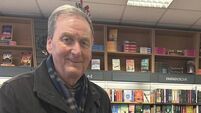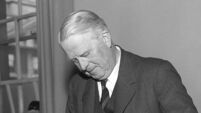Book review: A fresh perspective on reflection

Poet Theo Dorgan has just published his second novel: 'Camarade' is billed as a literary thriller.
- Camarade
- Theo Dorgan
- Mercier Press, €16.99
BOOKS & MORE
Check out our Books Hub where you will find the latest news, reviews, features, opinions and analysis on all things books from the Irish Examiner's team of specialist writers, columnists and contributors.







